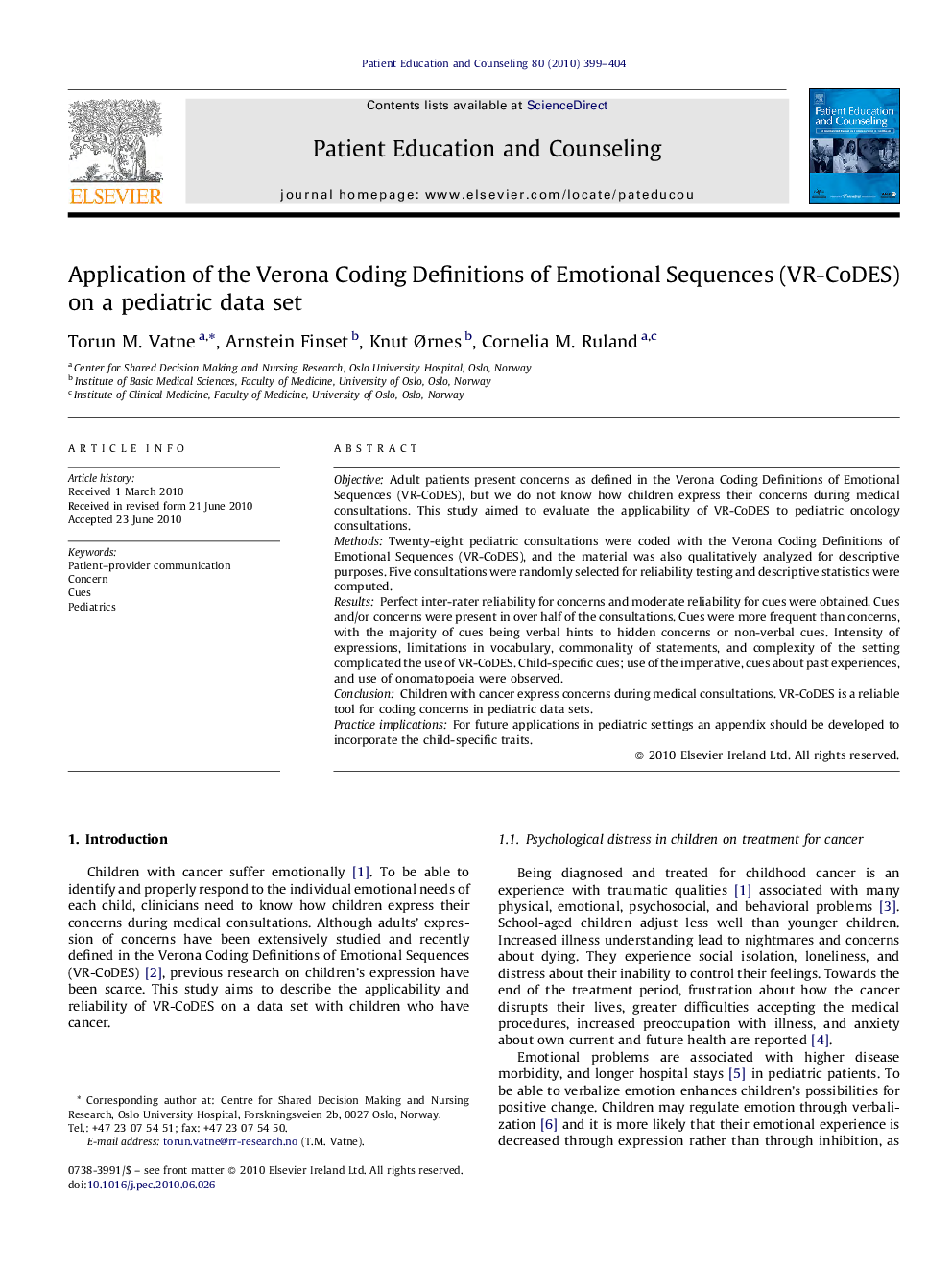| Article ID | Journal | Published Year | Pages | File Type |
|---|---|---|---|---|
| 3815410 | Patient Education and Counseling | 2010 | 6 Pages |
ObjectiveAdult patients present concerns as defined in the Verona Coding Definitions of Emotional Sequences (VR-CoDES), but we do not know how children express their concerns during medical consultations. This study aimed to evaluate the applicability of VR-CoDES to pediatric oncology consultations.MethodsTwenty-eight pediatric consultations were coded with the Verona Coding Definitions of Emotional Sequences (VR-CoDES), and the material was also qualitatively analyzed for descriptive purposes. Five consultations were randomly selected for reliability testing and descriptive statistics were computed.ResultsPerfect inter-rater reliability for concerns and moderate reliability for cues were obtained. Cues and/or concerns were present in over half of the consultations. Cues were more frequent than concerns, with the majority of cues being verbal hints to hidden concerns or non-verbal cues. Intensity of expressions, limitations in vocabulary, commonality of statements, and complexity of the setting complicated the use of VR-CoDES. Child-specific cues; use of the imperative, cues about past experiences, and use of onomatopoeia were observed.ConclusionChildren with cancer express concerns during medical consultations. VR-CoDES is a reliable tool for coding concerns in pediatric data sets.Practice implicationsFor future applications in pediatric settings an appendix should be developed to incorporate the child-specific traits.
